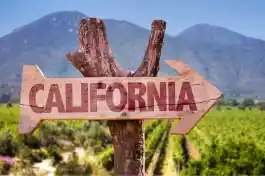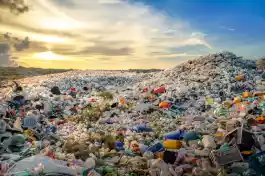Modal Header
- econews
The importance of bees and how we can help save them
Bees have been getting a lot of attention in recent years. We have all learned how to lend a helping hand to an exhausted bee with a spoonful of sugar water. We have all heard that the bees are dying out and that this is something we should be concerned about. But why exactly is this? Here is what you need to know.
Why are bees important?
Although feared by many, bees are a key part of the Earth’s ecosystem. Many fruits, nuts, and vegetables such as apples, blueberries, broccoli, and onions, to mention a few, rely to some extent or at least benefit from pollination from bees. Almond trees for example are heavily reliant on honeybees. Although the statistics vary, it is said that around 75 percent of our crops benefit from pollination by bees with around one-third being reliant on them, and if they were to die off, our grocery store shelves would look much sadder.
How do bees pollinate?
Bees are extremely hard workers but they do not actually work for us, they work for their queen. Their mission is to collect nectar and pollen from the flowers and take it back to their hive. The pollen is to feed the queen and the larvae, the nectar is for the worker and drone bees.
As they travel from flower to flower, some of the pollen brushes on and off of the stamen (the male part) and the stigma (the female part) allowing that plant to reproduce.
Some plants are self-pollinating and some are wind pollinated (anemophily) but a whopping 80 percent of our food crops require pollination from insects.
Why are bees in danger?
Diseases. There are a few reasons why the bee population is in decline. The worst threat to honey bees is the varroa destructor – a mite that feeds off of the bees and their larvae. Once the mite enters the hive, they feed off of the larvae and lay their eggs in the brood cells. When the larvae hatch, they are already weakened and sometimes infected with the disease, causing the bee to have a shortened lifespan and possibly spread diseases to other hives.
Another parasite that is affecting honey bees is Nosema, a fungus that attacks the gut of the bee and causes digestive disorders, reduction of the bee colony, and decreases the amount of eggs produced by the queen, should she become infected.
Pesticide use. Pesticides are used widely around the world to save crops from pests and diseases. These pesticides are killing the bees too – after all, they are insects right? Two of the main used pesticides are:
Glyphosate, the active ingredient in Monsanto’s Roundup, affects the bees gut microbiome and makes the bee more susceptible to other diseases.
Neonicotinoids are extremely toxic to bees and can affect their ability to forage for food, their navigation, and their memory.
Monoculture farming. Bees need biodiversity but the practice of planting just one type of crop over a large area means that they are not always getting it. Almond orchards in California are a good example of this. There are often acres and acres of nothing but almond trees and once the trees have stopped blooming, the bees then have nothing else to feed on.
The lack of crop rotation in monoculture farming increases the need for pesticides due to the pests developing heightened resistance.
Beekeeping practices. Many are surprised to find out that honey isn’t considered to be suitable for vegans. “But why?” I hear you ask? Well, as stated before, bees do not work for us, which means that they do not produce honey for us. Honey is actually a food that the bees make, and store in the cells of the hive, to eat over winter when there are not enough flowers in bloom for them to be able to collect nectar. Another function of the honey is to act as insulation for the hive during the colder periods.
If the honey is taken from them, this leaves them with insufficient food for the winter months. Some beekeepers will then feed the bees a sugar substance made from refined sugar, or even from corn syrup, which does not contain the nutrients that they need.
When the beekeepers collect the honey from the hive, they use smokers which makes the bees think that there is a forest fire. Their natural instinct is to start to eat as much honey as they can because they will have to abandon the hive and start a new one elsewhere. To prevent the bees from moving on, the beekeepers sometimes clip the wings of the queen bee so that she can not fly away, meaning that the other bees will also stay put.
Bees can also be harmed from the incorrect use of smokers or if the keepers are not careful enough when extracting the frames from the hives.
Of course, there are beekeepers who care very much for the well-being of their bees and do everything they can to keep them healthy. Some argue that if we all stopped eating honey, and using beeswax and royal jelly, the beekeepers would then have no interest in keeping bees as there would be no financial gain for them and this would only worsen the problem of the rapidly declining bee numbers.

What can we do to help save the bees?
- Find out what flowers are native to your area and which ones produce a good amount of nectar and plant them in your garden or on your balcony. Try to have a variety of flowers so there is always something in bloom. Make sure they are not pre-treated with pesticides.
- Don’t leave sugar water out for them. This is not to say that you can’t try and help an exhausted bee with a spoon of sugar water to give it an energy boost, but please do not leave sugar water out all of the time. The bees will stop looking for flowers to get nectar – which has the nutrition that they need, and they will rely on the sugar water because it takes less effort to find.
- Don’t use pesticides, fungicides, or herbicides. Instead, search for natural methods of keeping your plants healthy that will not harm the bees.
- Bees get thirsty while they are out foraging for food. Leave either a shallow dish of water with some stones in it or a deep dish of water with something in it that can float, like corks, so that the bees have something to land on while they drink without the risk of them drowning.
- If you eat honey, do your research and buy it from a beekeeper that uses ethical practices and has the bees welfare as a top priority.
- Buy organic food. Organic farms normally rotate crops meaning there is a diverse choice of plants for the bees to forage, along with the added benefit of minimal pesticide usage.
- Teach others about the importance of bees. Although many people know that bees are in danger, maybe they don’t know why this is, and what they can do to help. Spread your knowledge with others about the steps that they can take to save this amazing species.
DISCOVER

Related Articles
Message
Thanks for signing up. Please confirm your email address, check your inbox and verify your email.




















